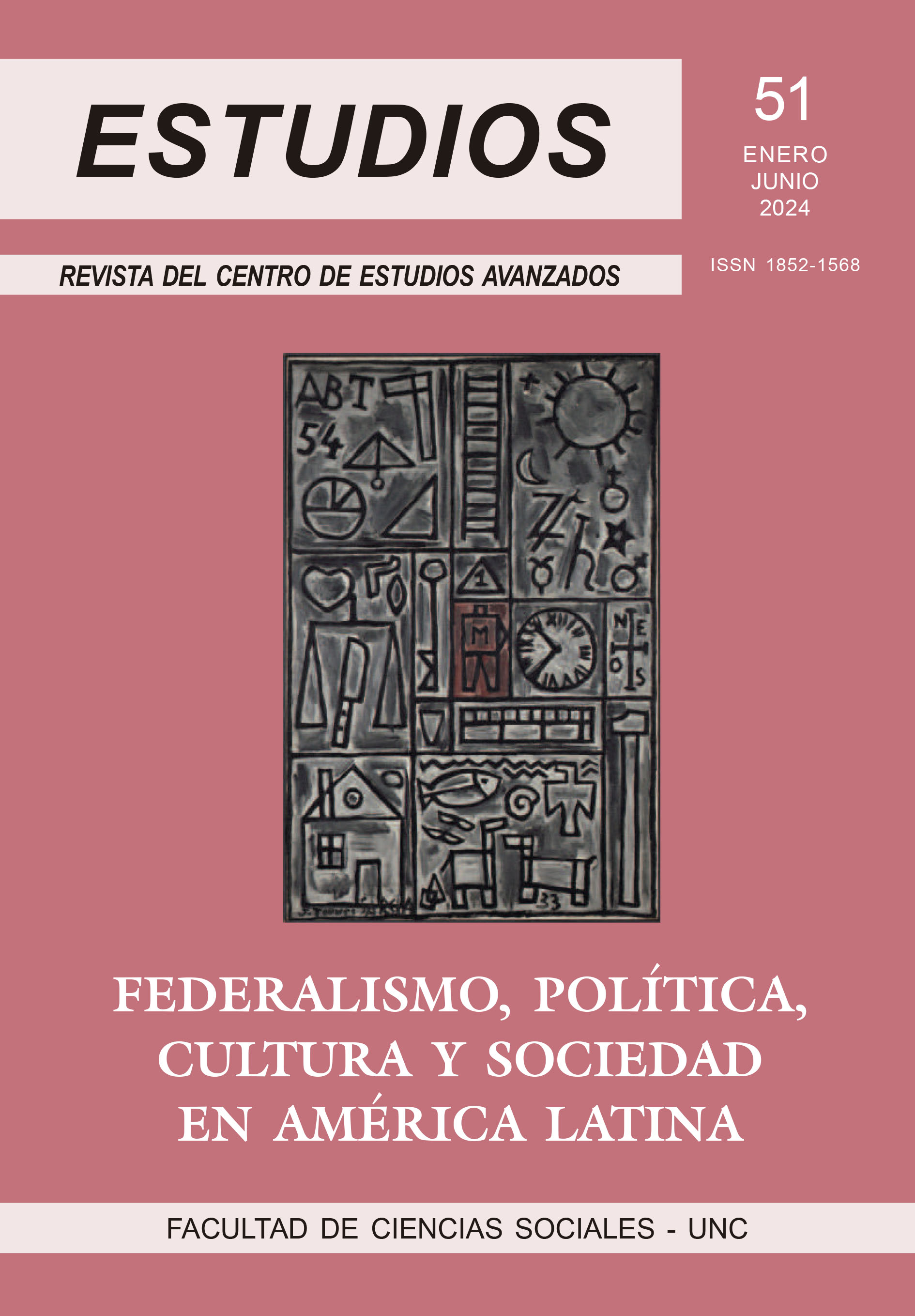Feminism and conservatism in Córdoba. Mobilization and legal countermobilization under Argentine federalism
DOI:
https://doi.org/10.31050/re.vi51.44520Keywords:
legal mobilization, conservative litigation, feminist movement, reproductive rights, subnational politicsAbstract
The dynamic between mobilization and countermobilization, which is a characteristic of contemporary social movements, in Latin America has occurred especially in the area of sexual and reproductive rights, and in the last two decades it has had the legal field as a privileged site. In Argentina this dynamic has occurred at the subnational level. The province of Córdoba has been the place where conservative strategic litigation by civil society organizations has been most systematically deployed in the country, against the local implementation of national norms on sexual and reproductive rights. In this context, feminism in Córdoba has developed important organizational networks among legal activists and health professionals, who carried out a process of institutionalization and regulatory creation from below, working between the national and municipal levels, in the face of the blockade at the provincial level due to judicialization. This article analyzes this process, and argues that the federal organization of the judicial power in the country contributes to the development of legal strategies of both movements and countermovements at the subnational level.
Downloads
References
Anzorena, C. (2013). Romper la ley: el gobierno de Mendoza frente al aborto no punible. Revista Bagoas, Estudos Gays, Gênero e Sexualidades 9: 267-292.
Asociación por los Derechos Civiles. (2013). Aborto no punible. El fallo F., A. L. s/ medida autosatisfactiva. ¿Qué obtuvimos y qué nos queda por obtener?, Buenos Aires, diciembre.
Balaguer, M, Baretta, M.L., Copetti, A. y García Garro, R. (2021). «La judicialización de la Ley 27.610 en Córdoba y el litigio estratégico defensivo», Ponencia, Seminario en Centro Cultural Haroldo Conti, Buenos Aires.
Carreras, S. (2001). La Sagrada Familia. Política e intimidades de la justicia federal en Córdoba. Córdoba: Ediciones del Boulevard.
Chappell, L. y Curtin, J. (2012). Does Federalism Matter? Evaluating State Architecture and Family and Domestic Violence Policy in Australia and New Zealand, Publius: The Journal of Federalism 43: 24–43.
Falleti, T.( 2010). Decentralization and subnational politics in Latin America. New York: Cambridge University Press.
Franceschet, S.y Piscopo, J. ( 2013). Federalism, decentralization, and reproductive rights in Argentina and Chile. Publius. The Journal of Federalism 43.1:129–150.
Gebruers, C. y Gherardi, N. (2015). El aborto legal en Argentina: la justicia después de la sentencia de la Corte Suprema de Justicia en el caso FAL, Buenos Aires: REDAAS.
Lemaitre, J. (2012). «By reason alone: Catholicism, constitutions, and sex in the Americas», International Journal of Constitutional Law 10.2: 493-511.
Lopreite, D. (2020). The federal restriction of women’s rights: Argentina’s politics on abortion and contraception. En Vickers, Jill, Joan Grace y Cheryl Collier, eds. Handbook on gender, diversity and federalism. Edward Elgar Publishing: 212-226.
Meyer, D. y Staggenborg, S. (1996). Movements, countermovements, and the structure of political opportunity, American journal of sociology 101.6: 1628-1660.
Navia, P. y Ríos-Figueroa, J. (2005). The constitutional adjudication mosaic of Latin America. Comparative Political Studies 38.2: 189-217.
Ruibal, A. (2021). «Forms of Countermovement and Counter-Reform in Latin America: Judicial Backlash or Resources and Political and Legal Opportunities?» En Brinks, D., Botero, S. y González Ocantos, E., eds. The Limits of Judicialization: From Progress to Backlash in Latin American Politics. New York: Cambridge University Press. 89-114.
Ruibal, A. (2021). Using constitutional courts to advance abortion rights in Latin America. International Feminist Journal of Politics 23.4: 579-599.
Ruibal, A. (2018). Federalism, two-level games and the politics of abortion rights implementation in subnational Argentina. Reproductive Health Matters 26.54: 137-144.
Ruibal, Alba. 2017. Movilización Legal a Nivel Subnacional en la Argentina. El Caso Sisnero por la Igualdad de Género en el Trabajo en Salta. Desarrollo económico 57.222: 277-297.
Sawer, M. y Vickers, J. (2010). Introduction: Political Architecture and its Gender Impact. En Haussmann, M., Sawer, M. y Vickers, J., eds., Federalism, Feminism and Multilevel Governance. Farnham, UK: Ashgate. 3–18.
Smulovitz C. (2015a). Legal inequality and federalism: domestic violence laws in the Argentine provinces. Latin American Politics and Society 57.3: 1–26.
Smulovitz, C. (2015b). ¿Quién paga por los derechos en las provincias argentinas? El caso de las leyes de violencia familiar. Desarrollo económico 55.216: 155-185.
Vaggione, J.M. (2005). «Reactive politicization and religious dissidence: the political mutations of the religious», Social theory and practice 31.2: 233-255.
Vickers, J. (2010). A Two-Way Street: Federalism and Women’s Politics in Canada and the United States, Publius: The Journal of Federalism 40: 412–35.
Downloads
Published
How to Cite
Issue
Section
License

This work is licensed under a Creative Commons Attribution-NonCommercial 4.0 International License.
Aquellos autores/as que publiquen en esta revista, aceptan los términos siguientes:- Los autores/as conservarán sus derechos de autor y garantizarán a la revista el derecho de primera publicación de su obra, el cual estará simultáneamente sujeto a la Licencia Creative Commons Atribución-NoComercial 4.0 Internacional que permite a terceros compartir la obra siempre que se indique su autor y su primera publicación esta revista.
- Los autores/as podrán adoptar otros acuerdos de licencia no exclusiva de distribución de la versión de la obra publicada (p. ej.: depositarla en un archivo telemático institucional o publicarla en un volumen monográfico) siempre que se indique la publicación inicial en esta revista.
- Se permite y recomienda a los autores/as difundir su obra a través de Internet (p. ej.: en archivos telemáticos institucionales o en su página web) luego del proceso de envío, lo cual puede producir intercambios interesantes y aumentar las citas de la obra publicada. (Véase El efecto del acceso abierto).











